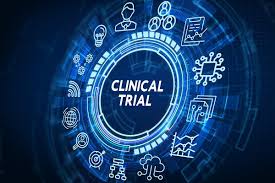According to a recent Gallup study, approximately 14% of Americans currently use CBD products. CBD has been increasing in popularity and praised for the health benefits it offers. Of the 14%, nearly half use CBD for pain management, with 20% using it for anxiety, and 11% for sleep.
However, with the growing use of these products, there are also concerns about CBD safety and legality.
More specifically, users are concerned with CBD showing up on drug tests. Keep reading to learn about CBD and drug tests, as well as safe doses for ingesting CBD.
Does CBD Show Up on Drug Tests?
Drug tests are not designed to detect CBD. Rather, they are much more concerned with detecting THC, which is the psychoactive component in cannabis that triggers a high. Buying and selling cannabis products is legal so long as their THC content doesn’t exceed .3%.
Taking small doses of CBD products with low THC concentrations shouldn’t theoretically show up on a drug test. Unfortunately, the FDA doesn’t regulate all CBD products, and some products may contain more than the legal amount of THC. Therefore, to pass a drug test, there are three important considerations to make:
- type of drug test for CBD
- source of CBD
- dosage and frequency of CBD use
Type of Drug Tests
The detection window for THC varies depending on the drug test.
Urine samples are most commonly used for CBD and employment drug testing. Urine tests can detect THC for several days after use. The higher the dosage and frequency of use, the longer that THC can be detected.
Blood and saliva tests are often utilized to detect current impairment from THC. These tests may detect THC within several hours or a few days after use.
Source of CBD
The results of a drug test may differ according to the kind of CBD product that is used.
There are two primary sources of CBD: full-spectrum and isolates. Full-spectrum CBD contains multiple compounds from the cannabis plant, including THC. A CBD isolate, on the other hand, is pure and will not contain any THC.
Be wary of CBD products, however. They are seldom regulated, and “THC-free” advertisements may not be entirely truthful. A drug test and CBD oil that has been mislabeled may result in THC detection.
Dosage and Frequency
The higher the dose, the longer that CBD will stay in the system. That’s why it’s important to adhere to the recommended dosage for all CBD products. Furthermore, CBD can build up in the body if it’s used regularly over time.
Final Considerations for CBD and Drug Tests
Passing a drug test while using CBD products is possible if you follow these tips:
Stay informed on the types of drug tests, and how the length of THC detection may vary with each test. Then, research before buying CBD products. Pick reliable sellers whose claims of “THC-free” or .3% THC content can be backed up.
Lastly, consider how the dosage and frequency of CBD use will impact test results.
If you found this article helpful, consider checking out the rest of our site for more information on CBD and its healthcare uses!










